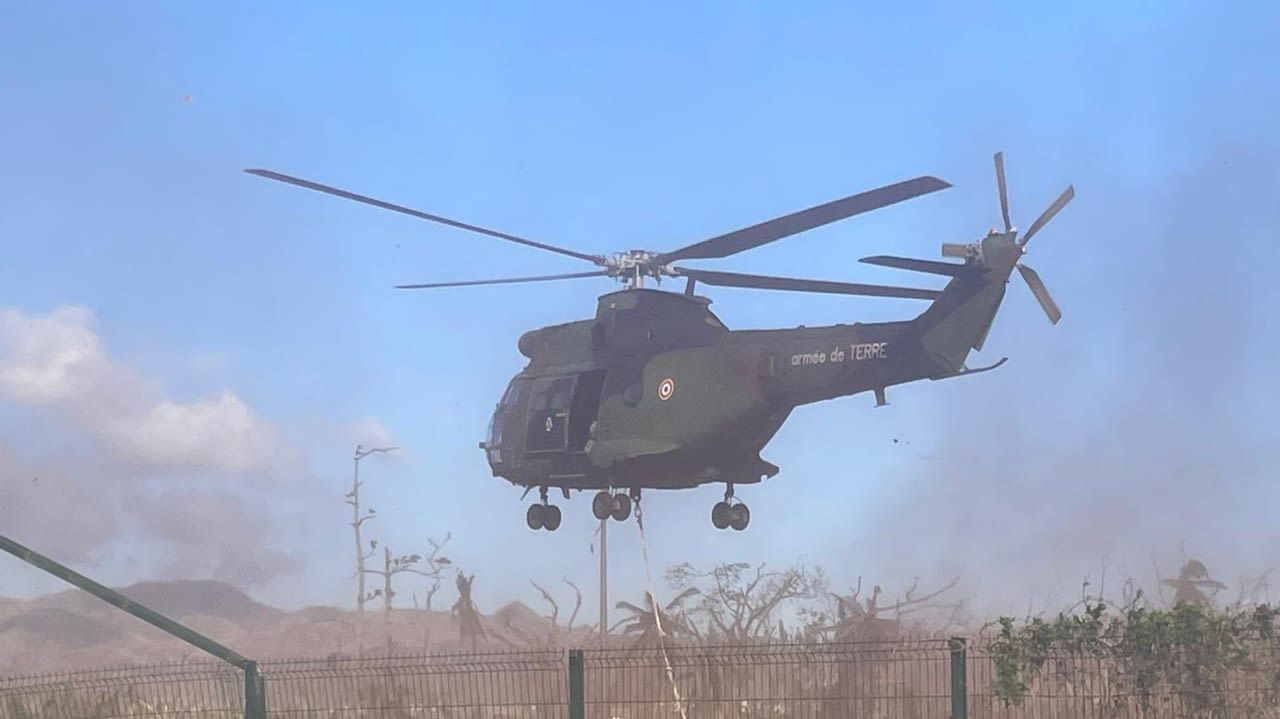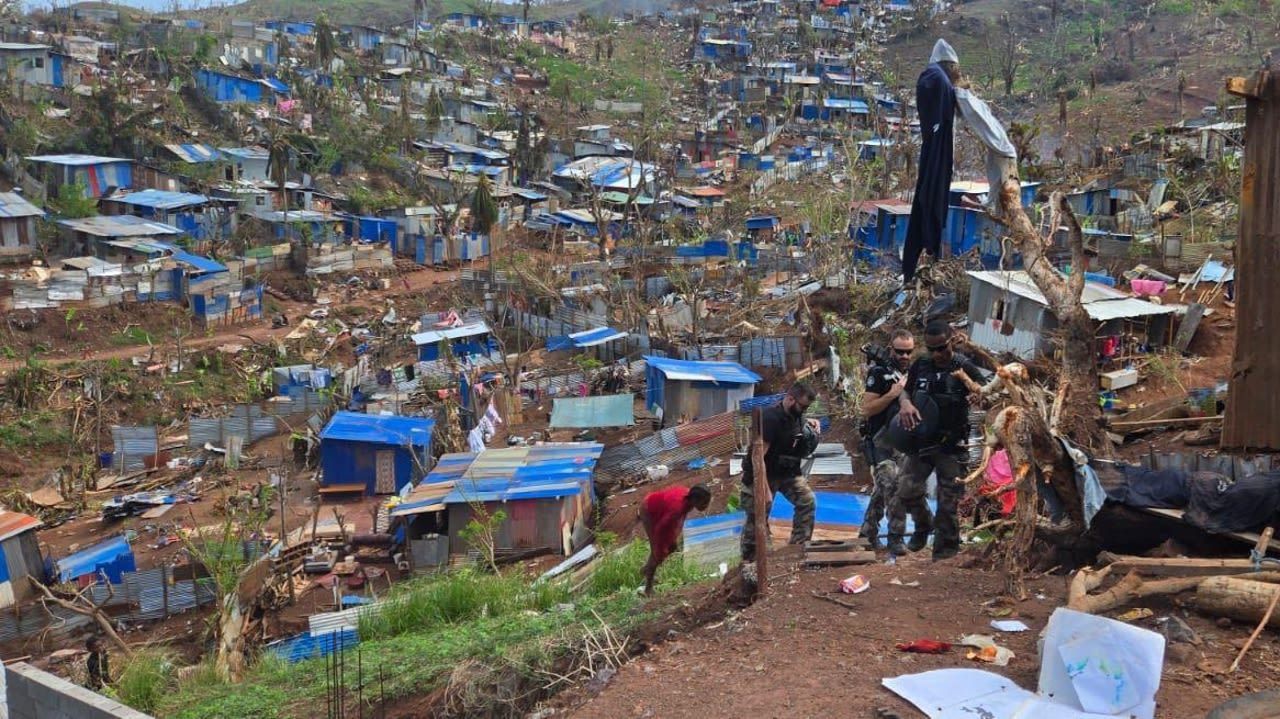Ardent since “several years”his desire to experience a humanitarian emergency mission to “help a population in difficulty” has been fulfilled since he set foot in Mayotte on December 21, 2024.
Captain Éric Zielinski, head of the departmental road safety squadron in Loir-et-Cher, discovered a landscape of desolation, following Cyclone Chido which ravaged the French island on December 14. “There were roofs and metal sheets torn off, especially in the shanty towns, trees on the ground, rubbish in the street, a feeling that the vegetation had been razed. Even the buildings suffered. »
The gendarmes are often in contact with the Mahorese population.
© Photo Eric Zielinski
Forty-five days at the bedside of an “amorphous” population
With two other gendarmes from the department (1), the forty-year-old is part of the large contingent of soldiers from mainland France. “Two marching companies, units used to reinforce local gendarmes, made up of around a hundred soldiers from Reunion and the mainland were engaged, in addition to two mobile gendarmerie squadrons”says Colonel Benoît Chevillard, who commands the departmental gendarmerie group.
The numerous slums in Mayotte suffered from Cyclone Chido.
© Photo Eric Zielinski
In the heart of the Indian Ocean and halfway through a mission which must last forty-five days before returning “late January-early February”Captain Éric Zielinski commands in the north of Mayotte, in Mtsamboro, a detachment of around twenty soldiers coming from all over France.
The missions are numerous and varied at the bedside of a population “amorphous” after having had an experience “harsh and extreme”, but also very “impatient” et ” happy “ of this help. Local prevention, contact with residents, distribution of food and water and other patrols make up the days. “We do a lot of securing buildings (school, town hall, village hall) because some have been victims of looting”tells the soldier who has already served in New Caledonia (2001) and in Guyana in the early 2010s.
“Demonstrate resilience”
The recent passage of tropical storm Dikeledi, Sunday January 12, brought torrential rains and required numerous “axis checks” after “landslides”in addition to the interventions “like in mainland France, with attacks on property and people”. Except that in Mayotte, a 10 p.m. curfew is still “respected ».
-
Helicopters are part of the means used to maintain order in Mayotte, in particular.
© Photo Eric Zielinski
This intense activity united the mobilized soldiers. “When we arrived, things were so unusual and impressive. But between us, there is a cohesion and an esprit de corps that is established. We haven't had electricity for three days, nor running water. There, we are in a private building, but the first two weeks, in Koungou, in the east of the island, we were housed in a high school. We slept on a picot bed in the classrooms. You have to be resilient. »
Conditions far from discouraging the 48-year-old gendarme. “I really feel useful. I met an extremely friendly population, humble people accustomed to living in conditions far removed from the comfort of the metropolis. »

Little by little, the slums of Mayotte are trying to recover from the consequences of Cyclone Chido.
© Photo Eric Zielinski
The situation did not improve after this natural disaster which brought the island to a standstill. “Schools are often busy with refugees and emergency humanitarian centers. » The deployment of the military and the material aid reassure the inhabitants, despite the scale of the reconstruction to come. “The cyclone exposed the difficulties that existed, analyzes the policeman. But the Mahorais have high hopes because they do not feel abandoned. »
(1) Chief Florian Boireau of the La Chaussée-Saint-Victor motorized platoon, gendarme Alexandre Van De Velde of the Marchenoir brigade.









